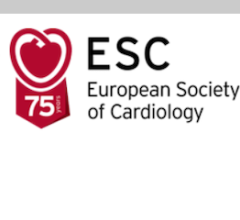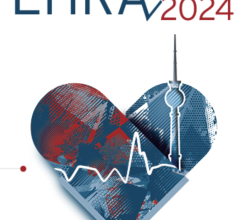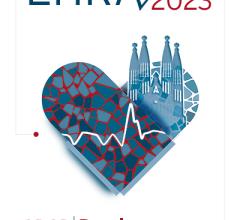
Getty Images
June 19, 2023 — Patients who had heart attacks during the first COVID-19 lockdown in the UK and Spain are predicted to live 1.5 and 2 years less, respectively, than their pre-COVID counterparts. That’s the finding of a study published today in European Heart Journal – Quality of Care and Clinical Outcomes, a journal of the European Society of Cardiology (ESC).1 The additional costs to the UK and Spanish economies are estimated at £36.6 million (€41.3 million) and €88.6 million, respectively, largely due to absence from work.
“Restrictions to treatment of life-threatening conditions have immediate and long-term negative consequences for individuals and society as a whole,” said study author Professor William Wijns of the Lambe Institute for Translational Medicine, University of Galway, Ireland. “Back-up plans must be in place so that emergency services can be retained even during natural or health catastrophes.”
Heart attacks require urgent treatment with stents (called percutaneous coronary intervention or PCI) to open the blocked artery and restore the flow of oxygen-carrying blood. Delays, and the resulting lack of oxygen, lead to irreversible damage of the heart muscle and can cause heart failure or other complications. When a large amount of heart tissue is damaged, the heart stops beating (called cardiac arrest) and this can be fatal.
During the first wave of the pandemic, about 40% fewer heart attack patients went to hospital2,3 as governments told people to stay at home, people were afraid of catching the virus, and some routine emergency care was stopped. Compared to receiving timely treatment, heart attack patients who stayed at home were more than twice as likely to die,4 while those who delayed going to the hospital were nearly twice as likely to have serious complications that could have been avoided.5
This study estimated the long-term clinical and economic implications of reduced heart attack treatment during the pandemic in the UK and Spain. The researchers compared the predicted life expectancy of patients who had a heart attack during the first lockdown with those who had a heart attack at the same time in the previous year. The study focused on ST-elevation myocardial infarction (STEMI), where an artery supplying blood to the heart is completely blocked. The researchers also compared the cost of STEMIs during lockdown with the equivalent period the year before.
A model was developed to estimate long-term survival, quality of life and costs related to STEMI. The UK analysis compared the period 23 March (when lockdown began) to 22 April 2020 with the equivalent time in 2019. The Spanish analysis compared March 2019 with March 2020 (lockdown began on 14 March 2020). Survival projections considered age, hospitalization status and time to treatment using published data for each country. For example, using published data, it was estimated that 77% of STEMI patients in the UK were hospitalized prior to the pandemic compared with 44% during lockdown. The equivalent rates for Spain were 74% and 57%. The researchers also compared how many years in perfect health were lost for patients with a STEMI before versus during the pandemic.
The cost analysis focused on initial hospitalization and treatment, follow-up treatment, management of heart failure and productivity loss in patients unable to return to work. For example, the cost applied to a STEMI admission with PCI was £2,837 in the UK and €8,780 in Spain. Heart failure costs were estimated at £6,086 in year one and £3,882 in all subsequent years for the UK. The equivalent figures for Spain were €3,815 (year one) and €2,930 (each subsequent year).
The analysis predicted that patients who had a STEMI during the first UK lockdown would lose an average of 1.55 years of life compared to patients presenting with a STEMI before the pandemic. In addition, while alive, those with a STEMI during lockdown were predicted to lose approximately one year and two months of life in perfect health. The equivalent figures for Spain were 2.03 years of life lost and around one year and seven months of life in perfect health lost.
In the UK, the extra cost of one STEMI during the pandemic, compared to before, was £8,897 which included £214 for the National Health Service and £8,684 in work absenteeism.6 Based on an incidence of 49,332 STEMIs per year, reduced access to PCI during the first month of lockdown was projected to cost an extra £36.6 million (€41.3 million) over the lifetime of these patients.
For Spain, the extra cost per STEMI during lockdown was estimated at €20,069. Based on an annual STEMI incidence of 52,954 STEMIs, reduced access to PCI during March 2020 was projected to cost an additional €88.6 million over these patients’ lifetimes. Work absenteeism was the main contributor, costing an extra €23,224 per patient (€81,062 pre- vs. €104,286 post-pandemic). However, this was partially offset by lower costs of heart failure hospitalizations since more STEMI patients died during lockdown.
Professor Wijns said: “The findings illustrate the repercussions of delayed or missed care. Patients and societies will pay the price of reduced heart attack treatment during just one month of lockdown for years to come. Health services need a list of lifesaving therapies that should always be delivered, and resilient healthcare systems must be established that can switch to emergency plans without delay. Public awareness campaigns should emphasize the benefits of timely care, even during a pandemic or other crisis.”
For more information: www.escardio.org
References and Notes
1Lunardi M, Mamas MA, Mauri J, et al. Predicted clinical and economic burden associated with reduction in access to acute coronary interventional care during the COVID-19 lockdown in two European countries. Eur Heart J Qual Care Clin Outcomes. 2023. doi:10.1093/ehjqcco/qcad025.
Link will go live on publication:
https://academic.oup.com/ehjqcco/article-lookup/doi/10.1093/ehjqcco/qcad025
2Mafham MM, Spata E, Goldacre R, et al. COVID-19 pandemic and admission rates for and management of acute coronary syndromes in England. Lancet. 2020;396:381–389.
3Pessoa-Amorim G, Camm CF, Gajendragadkar P, et al. Admission of patients with STEMI since the outbreak of the COVID-19 pandemic: a survey by the European Society of Cardiology. Eur Heart J Qual Care Clin Outcomes. 2020;6:210–216.
4Wadhera RK, Shen C, Gondi S, et al. Cardiovascular deaths during the COVID-19 pandemic in the United States. J Am Coll Cardiol. 2021;77:159–169.
5De Rosa S, Spaccarotella C, Basso C, et al. Reduction of hospitalizations for myocardial infarction in Italy in the COVID-19 era. Eur Heart J. 2020;41:2083–2088.
6Numbers add up to £8,898, rather than £8,897, due to rounding.
Related Long-COVID Coverage:
ACC23 Study Finds Long COVID More Than Doubles Risk of Developing New Cardiac Symptoms
ACC Scientific Session 2023 to Feature Smidt Heart Institute Experts
MRI Sheds Light on COVID Vaccine-Associated Heart Muscle Injury
What We Know About Cardiac Long-COVID Two Years Into the Pandemic
VIDEO: Long-term Cardiac Impacts of COVID-19 Two Years Into The Pandemic — Interview with Aaron Baggish, M.D.
VIDEO: Long-COVID Presentations in Cardiology at Beaumont Hospital — Interview with Justin Trivax, M.D.
VIDEO: Cardiac Presentations in COVID Long-haulers at Cedars-Sinai Hospital — Interview with Siddharth Singh, M.D.
Find more COVID news and videos
Related Covid Content:
MRI Reveals Significant Brain Abnormalities Post-COVID
MRI Innovation Makes Cancerous Tissue Light Up and Easier to See
Long COVID Syndrome in Children and Teens
Long COVID Implications: Increased Health Care Use After Infection With SARS-Cov-2
Lasting Lung Damage Seen in Children and Teens after COVID
PHOTO GALLERY: How COVID-19 Appears on Medical Imaging
COVID-19 Fallout May Lead to More Cancer Deaths
Kawasaki-like Inflammatory Disease Affects Children With COVID-19
FDA Adds Myocarditis Warning to COVID mRNA Vaccine Clinician Fact Sheets
CMS Now Requires COVID-19 Vaccinations for Healthcare Workers by January 4
Cardiac MRI of Myocarditis After COVID-19 Vaccination in Adolescents
Small Number of Patients Have Myocarditis-like Illness After COVID-19 Vaccination
Overview of Myocarditis Cases Caused by the COVID-19 Vaccine
Case Study Describes One of the First U.S. Cases of MIS-C
NIH-funded Project Wants to Identify Children at Risk for MIS-C From COVID-19


 August 29, 2025
August 29, 2025 









